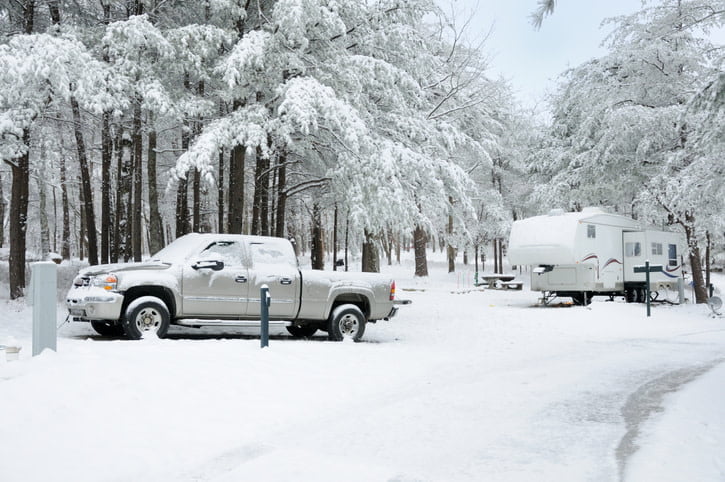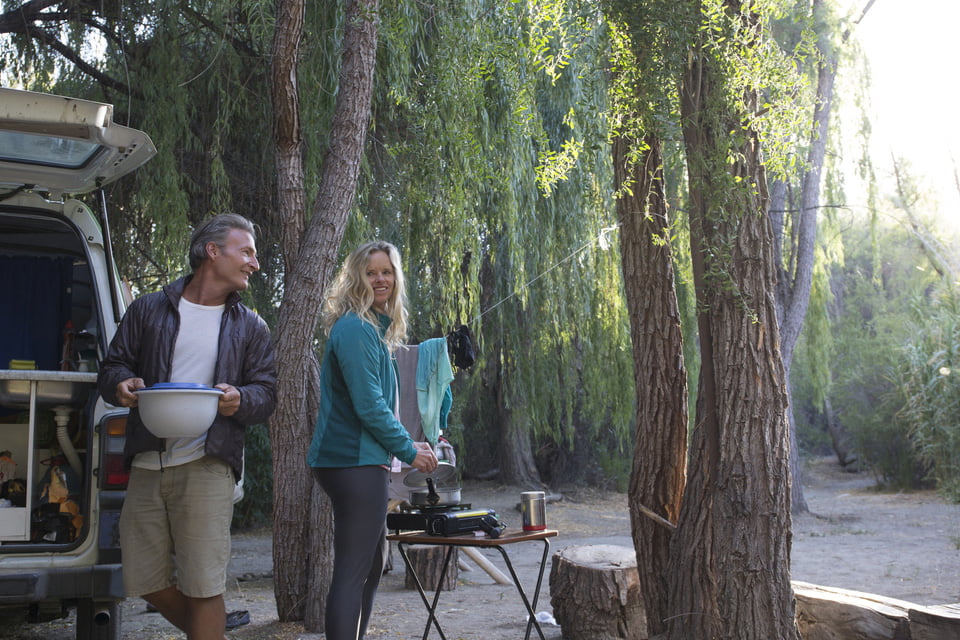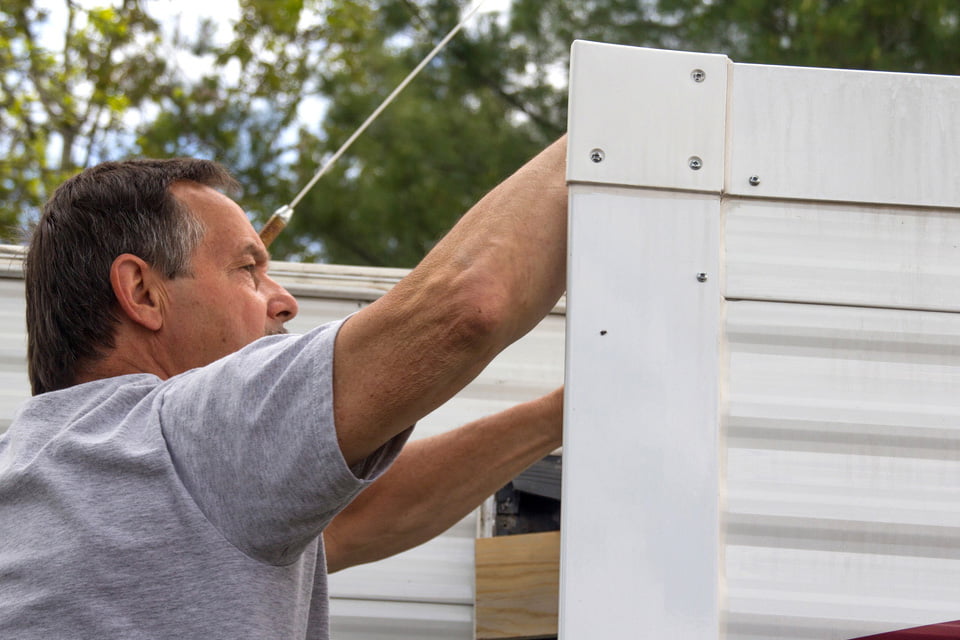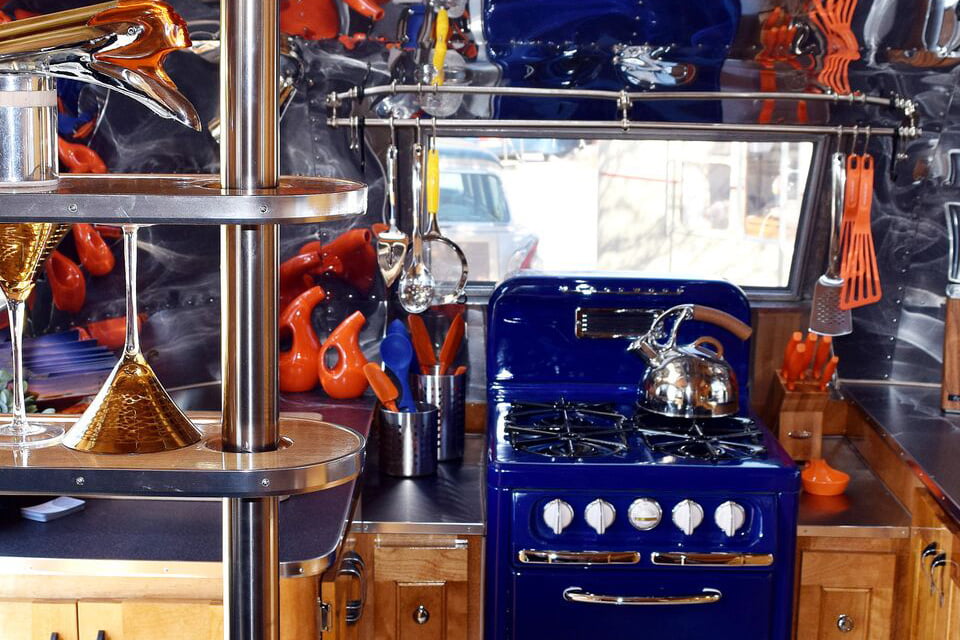Winter RV camping can be an exciting and unique experience, provided you are prepared and take the necessary precautions. You can enjoy the winter landscape while staying warm and safe.
Preparing your RV before a winter trip is key. By preparing your RV for cold weather, you are protecting your RV from damage like freezing. Stay warm and make your winter camping experience an enjoyable and memorable one.
RV ENGINE MAINTENANCE
RV engines require extra protection to withstand winter temperatures. Before heading out, inspect your RV batteries for signs of corrosion or damage. Make sure the batteries are fully charged and securely connected. If your batteries have only a part charge, they are more likely to freeze or die in cold temperatures.
Check your RV antifreeze and refill it with the proper concentration of RV antifreeze and water. While water is effective for cooling an engine in warmer weather, using at least 50 percent antifreeze is essential for RV camping in freezing temperatures. The use of an engine block heater can also provide additional protection. Engine block heaters are meant to warm up your engine before starting it. If the temperature drops below freezing, you should start the block heater for approximately four to five hours before starting the engine .
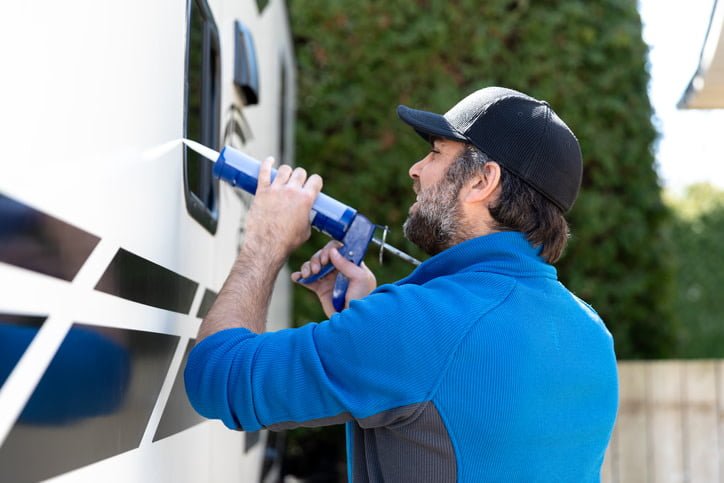
INSULATION
Adding some insulation is one of the best and simplest ways to keep a RV warm in the winter. RV insulation protects many vehicle components from damage and helps create a warm and toasty living space. Insulation around the base of the RV can also effectively block cold winter winds from damaging RV plumbing and sucking heat out of the RV. If you are planning to head out for a winter camping trip, try these tips to add some insulation for cold weather camping:
- Check the window and door seals: Examine the seals and caulking around your RV windows and replace any areas that are missing or weak. Replace weather stripping around exterior doors to prevent cold air or moisture from leaking in.
- Add window coverings: Window film and reflective foil are an effective and affordable way to increase your RV window insulation. Reflective foil insulation can be cut to fit and has the added bonus of reflecting heat back into the RV.
- Add heavy curtains: Thick curtains can block drafts around windows and help keep the warm air in. Curtains can also be added to separate the cockpit from the living space, so you are heating a smaller area.
- Insulate the floors: Foam board flooring can be installed to insulate the RV floor. If you prefer not to change your flooring, the use of heavy rugs or carpets can also help block cold air from coming up from underneath the RV.
- Install RV skirting: Installing RV skirting around the base of the RV can block cold winds from damaging vehicle components and chilling the interior. The use of foam boards around the exterior can also be used along with, or instead of skirting to help insulate around your RV.
RV PLUMBING
Freezing pipes are a common challenge for winter RV camping and can lead to plumbing damage. If not properly insulated or winterized and ice forms in pipes and hoses, it can expand and cause them to crack or burst. Try these tips to help keep your RV pipes from freezing while winter camping:
Note: Depending on where you are planning your winter camping trip, as temperatures vary greatly, some of these tips may not be suitable.
- Add heat tape to pipes and hoses: Wrap your freshwater and sewer hose with heat tape to help prevent freezing. Heat tape can also be added around valves and connections that are more prone to freezing. For added protection you can also add foam insulation.
- Keep indoor plumbing warm: Open the cupboard in your bathroom and kitchen, to let the inside heating help keep your indoor plumbing warm. Keep water moving by allowing the taps to slowly drip will also help to keep them from freezing.
- Use the internal freshwater tank: Instead of connecting your RV to external water sources, fill the internal freshwater tank to use as your primary water source. This allows you to disconnect and safely store your freshwater hose.
Note: Some experts don’t recommend using your freshwater tank or hoses. Instead they recommend to bring water jugs to use for cooking and dishes alike.
- Use a space heater: If your RV water lines or water pump are not protected by a heat source, the use of a small space heater can help to prevent freezing. Practice extreme safety precautions when using space heaters by keeping them an appropriate/safe distance away from other RV components and vents.
- Add RV antifreeze: Adding a small amount of RV antifreeze in holding tanks can help to protect the valves from freezing.
- Dump tanks wisely: Only dump tanks when they are full to reduce the risk of freezing. Keep waste valves closed when not in use.
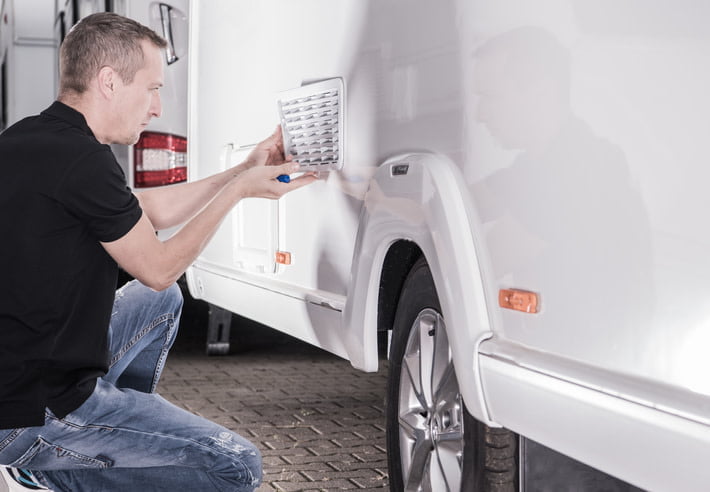
INSPECT YOUR RV FURNACE
Inspect your RV furnace before your trip to ensure it is in good working condition. If you are planning to be camping in extremely cold temperatures, it is recommended to have a certified RV technician inspect your RV. Clean your furnace with compressed air or a soft brush to remove all the dirt. Check vents for any damage or obstructions that could prevent the air from flowing properly and make sure the furnace air return is not blocked.
When RVing in winter, you may also choose to use additional heat sources. Space heaters and catalytic heaters can make a big difference for staying warm. However keep in mind that these heating methods can add moisture to the air which can cause condensation in the engine or pipes and this can cause corrosion. Extra moisture inside your RV may cause mould to grow. If this is the case, the use of a dehumidifier will help keep your RV warm and dry.
MORE TIPS
- Cover your AC unit: Use an insulated AC cover to protect your AC unit while it is not in use and to help prevent cold drafts.
- Add vent covers: RV vent covers allow you to keep your air vents open in any weather without having the elements getting in. Having the ability to keep air vents open reduces the risk of carbon monoxide poisoning if you are using a portable heater and also allows the humidity to escape to help keep your RV dry.
- Stop stabilizing jacks from freezing: When parking your RV in snowy or icy conditions, place wooden blocks underneath the jacks to prevent them from sticking to the cold ground.
- Maintain safety devices: It is essential to test that carbon monoxide and smoke detectors are in good working condition especially when running space heaters inside your RV.
As access and services to park locations continue to vary across the country, it is recommended that you check the location’s website directly to confirm your visit.
https://www.ontarioparks.com/en
https://explorerrvclub.com/rv-campgrounds/
https://www.campinginontario.ca/campgrounds
https://www.gov.mb.ca/sd/parks/
https://www.tourismsaskatchewan.com/places-to-go/provincial-parks
https://www.campingquebec.com/en/camping-in-quebec/decouvrezlequebec/campground-guide/
https://www.tourismpei.com/pei-provincial-parks
https://www.gov.nl.ca/tcii/parks/

